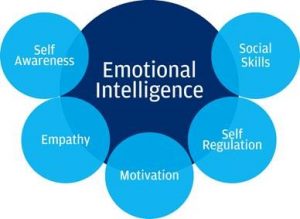 Emotional intelligence has been a hot topic in the workplace for quite a while, but what exactly does it mean and why is it so important? Emotional intelligence refers to a person’s ability to recognize and understand emotions both in themselves and others. According to Peter Salovey and John D. Mayer, two leading researchers on the topic, there are four different levels of emotional intelligence: perceiving emotions, reasoning with emotions, understanding emotions and managing emotions.
Emotional intelligence has been a hot topic in the workplace for quite a while, but what exactly does it mean and why is it so important? Emotional intelligence refers to a person’s ability to recognize and understand emotions both in themselves and others. According to Peter Salovey and John D. Mayer, two leading researchers on the topic, there are four different levels of emotional intelligence: perceiving emotions, reasoning with emotions, understanding emotions and managing emotions.
So, why does emotional intelligence matter in the workplace? Emotional intelligence is widely recognized as a valuable skill that helps improve communication, management, problem-solving and relationships within the office. Let’s take a look at the differences between a workplace with High Emotional Intelligence versus Low Emotional Intelligence:
High Emotional Intelligence Workplace
- Keeping cool under pressure
- Practicing effective conflict resolution
- Having greater empathy towards team members
- Listening and responding calmly to constructive criticism
- Making better decisions that benefit everyone and solving problems quickly and effectively
Low Emotional Intelligence Workplace
- Possessing a passive or aggressive communication style
- Refusing to work as a team
- Playing the “victim role” and not taking responsibility for behavior or work errors
- Being overly critical of others or not open to team members’ opinions
There’s no question which environment a person would rather work in day after day. And there’s also no question which workplace enjoys greater productivity, lower turnover and happier team members. Emotional intelligence plays a vital role not only in well being, but the overall success of a workplace.
Fortunately, emotional intelligence can be improved with training and practice. That’s where Leah M. Joppy and Associates can help. We’ve worked with many work teams to help them increase their knowledge of emotional intelligence in the office, put practical ideas into practice and look for areas of improvement. For more information, contact us at 301-670-0051 or email leah@lmja.com.